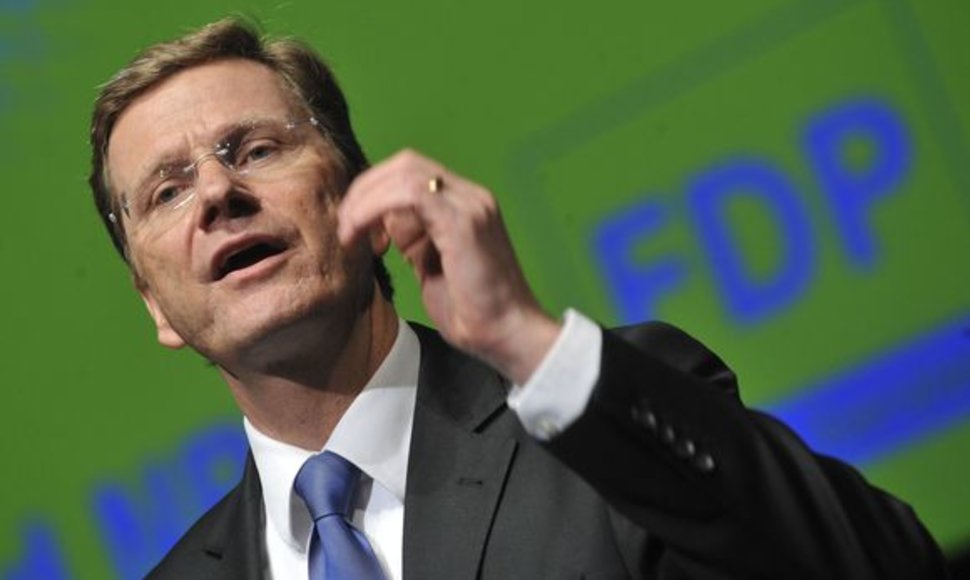In a joint statement, the four ministers said "the imbalances that have come about are not limited to those among the national economies of the euro zone. There is also a growing gap among the national debates on Europe. Two decades after the fall of the Berlin Wall, a new split threatens to divide our continent, this time between north and south. We cannot allow that to happen. Our countries cannot enjoy a bright future without a united Europe."
"Germany is no more capable than Estonia, Latvia, or Lithuania of managing on its own the challenges of the global age. Therefore, what we need now is further integration to uphold European values. What we need is "more Europe!" according to the statement signed by Lithuanian, Latvian, Estonian, and German Ministers of Foreign Affairs Audronius Ažubalis, Edgars Rinkēvičs, Urmas Paet, and Guido Westerwelle.
The ministers called ongoing reforms in the Baltic states a model of fiscal discipline, and said the euro zone crisis could be resolved only by closer cooperation on economic and fiscal policy.
"The successful reforms carried out in Estonia, Latvia and Lithuania should encourage us in Europe to continue along the path upon which we embarked when we signed the fiscal compact and created the ESM rescue fund," the ministers said.
"We need to make the monetary union fit for the future by complementing it with closer collaboration on economic and fiscal policy. This is just as important to Germany and Estonia as members of the euro zone as to its prospective members Latvia and Lithuania," the statement said.
Talking about ongoing negotiations on the new EU budget, the ministers said targeted investments into innovation were the best path to regain economic competitiveness in Europe.
According to the Baltic and German ministers, one needs to ensure that Europe continues to have effective and democratically accountable institutions and make Europe "a true global player."
In the statement made on the day of signing of the Molotov-Ribbentrop Pact which led to the occupation of the Baltic states, the ministers condemned the document stating that the secret additional protocol to the Pact defined Soviet and German spheres of influence and "paved the way for a policy of injustice and inhumanity which brought disaster on a catastrophic scale on Europe."
"23 August 1939, a dark day in history, reminds us how precious our European culture of trust is," the ministers said.












